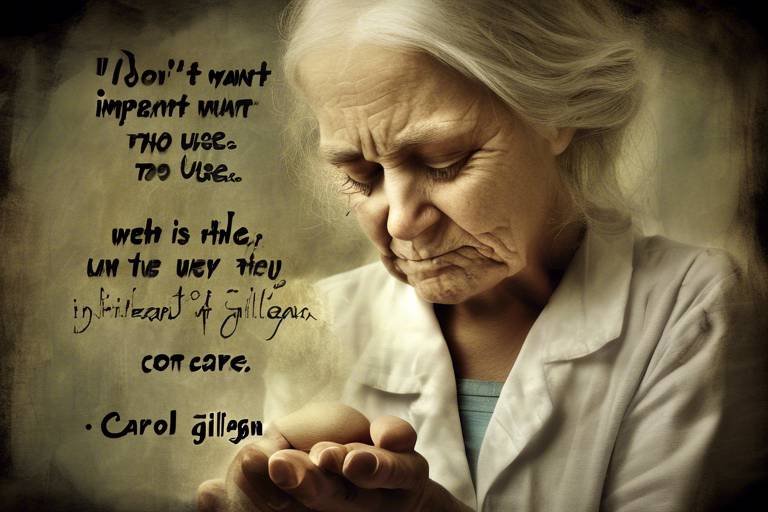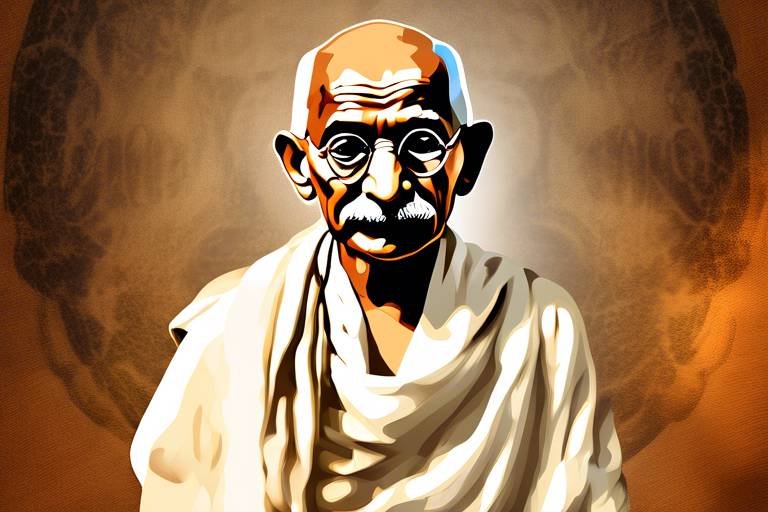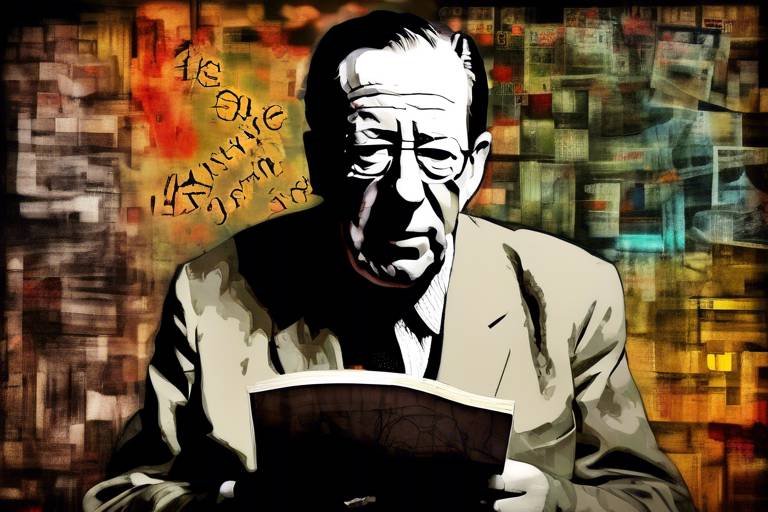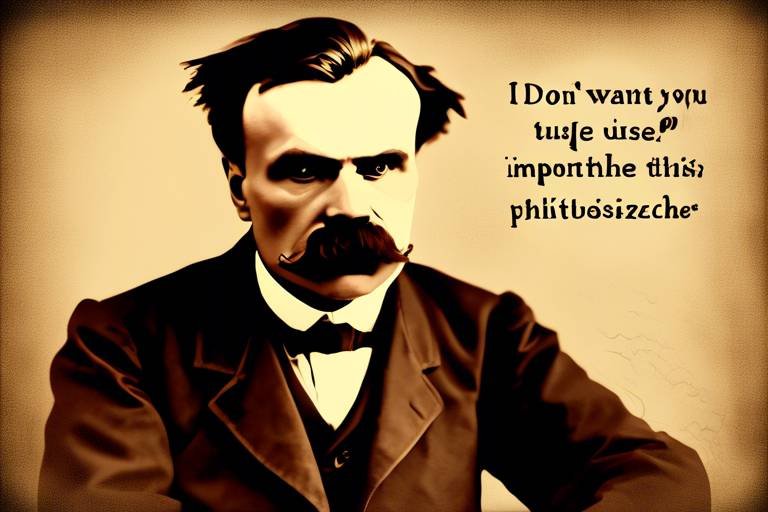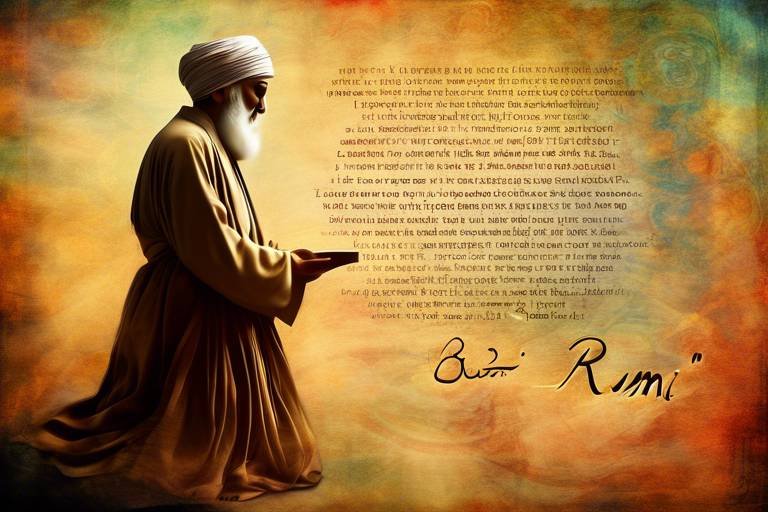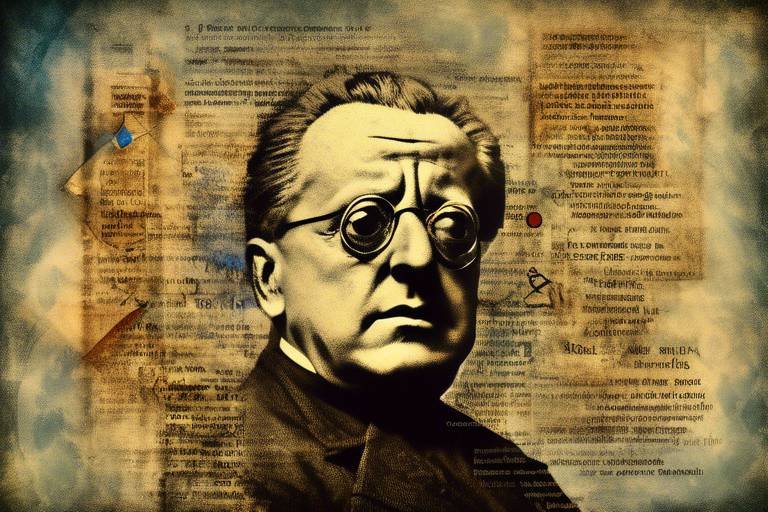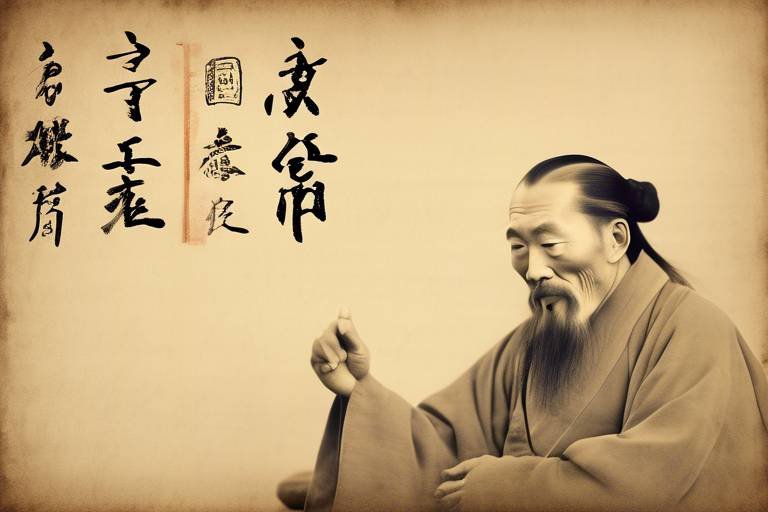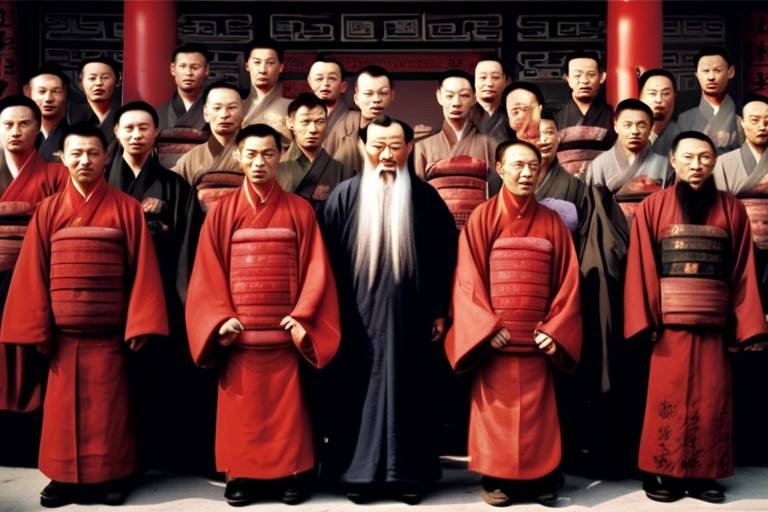The Ethical Standpoints of Philosopher Alain Badiou
In the intricate tapestry of contemporary philosophy, Alain Badiou stands out as a beacon of challenging yet thought-provoking ideas. His ethical framework, deeply rooted in the notions of truth, fidelity, and the event, invites us to reconsider our moral compass in a rapidly changing world. Badiou's work compels us to engage with the ethical dilemmas that arise in our lives, urging us to question what it means to act justly in a society often riddled with contradictions. As we delve into Badiou's philosophy, we uncover a rich landscape of thought that not only critiques existing norms but also offers a pathway to a more profound understanding of our responsibilities to ourselves and to others.
At the heart of Badiou's ethical stance lies the concept of truth. Unlike conventional views that may see truth as a static entity, Badiou posits that truth is dynamic and emerges through significant events that disrupt the status quo. These events, whether they be revolutions, social movements, or personal awakenings, serve as catalysts for ethical transformation. They challenge us to reassess our beliefs and actions, prompting a reevaluation of what we consider to be morally right or wrong. In this sense, Badiou’s ethics are not merely theoretical; they are deeply practical, urging us to remain vigilant and responsive to the unfolding realities around us.
Moreover, Badiou emphasizes the importance of fidelity to the truths that arise from these events. This fidelity is not a passive acceptance but an active commitment to uphold and advocate for the truths that resonate with our ethical convictions. It demands that individuals take a stand, even in the face of adversity, to ensure that these truths are not lost in the noise of everyday life. As Badiou suggests, fidelity involves a profound sense of responsibility, a call to action that transcends mere personal ethics and extends into the collective realm of societal obligations.
Yet, Badiou's ethical framework is not without its critics. Some argue that his focus on idealism may overlook the complexities and messiness of real-world situations. Questions arise about the applicability of his philosophical ideals when faced with the harsh realities of political and social injustices. How do we balance the lofty aspirations of Badiou’s ethics with the pragmatic demands of everyday life? This tension between idealism and realism is a recurring theme in discussions about Badiou’s work, prompting scholars and activists alike to grapple with the implications of his philosophy in practical contexts.
As we navigate the intricacies of Badiou's ethical standpoints, it becomes evident that his ideas have significant implications for contemporary ethics, particularly in the realms of political activism and social justice. His philosophy encourages individuals to engage actively with political movements, advocating for a rethinking of ethical responsibilities in the pursuit of social change. Badiou’s work inspires us to align our actions with higher ethical standards, prompting critical examinations of how we can contribute to a more just society.
In conclusion, Alain Badiou’s ethical framework offers a compelling lens through which we can explore the complexities of morality in today’s world. By emphasizing the significance of truth, fidelity, and events, he challenges us to rethink our ethical responsibilities not just as individuals but as part of a collective striving for justice and understanding. As we reflect on his ideas, we are reminded of the power of philosophy to inspire change and provoke thought, urging us to remain engaged in the ongoing dialogue about ethics in our lives.
- What is the main focus of Alain Badiou's ethical philosophy?
Badiou's ethics center around the concepts of truth, fidelity, and events, emphasizing the importance of remaining committed to truths that emerge from significant disruptions in society. - How does Badiou define an 'event'?
An event, in Badiou's philosophy, is a transformative occurrence that challenges existing norms and creates new possibilities for ethical action and understanding. - What role does fidelity play in Badiou's ethics?
Fidelity is the commitment to uphold the truths that arise from events, demanding active engagement and responsibility towards those truths in a constantly evolving world. - What are some critiques of Badiou's ethical framework?
Critics argue that Badiou's focus on idealism may overlook practical considerations, raising questions about the applicability of his philosophical ideals in real-world scenarios. - How has Badiou influenced contemporary discussions on social justice?
His ideas encourage critical examination of ethical responsibilities in political activism and social justice, prompting individuals and societies to align their actions with higher ethical standards.

Introduction to Badiou's Ethics
Alain Badiou, a prominent French philosopher, has crafted an ethical framework that is as intriguing as it is complex. At its core, Badiou's ethics revolves around the interplay of truth, fidelity, and the concept of the event. These elements are not just abstract ideas; they serve as the foundation for understanding moral dilemmas and societal responsibilities in today's rapidly changing world. Badiou challenges us to rethink our ethical commitments, urging us to engage with the world in a way that transcends traditional moral boundaries.
What makes Badiou's approach particularly compelling is his insistence that ethics is not merely about adhering to established norms or conventions. Instead, he posits that true ethical action arises from moments of disruption—those pivotal events that shake the very foundations of our understanding. In this sense, ethics becomes a dynamic process, one that requires us to remain vigilant and responsive to the truths that emerge from these events.
Consider this: how often do we find ourselves caught in the web of societal expectations, unsure of how to act in the face of injustice? Badiou's philosophy offers a refreshing perspective. He invites us to embrace the chaos of transformative events, suggesting that it is precisely in these moments that we can discover new ethical pathways. This is not to say that Badiou's ethics are without challenges; they demand a level of engagement and commitment that can be daunting. Yet, the potential for profound change makes this journey worthwhile.
In exploring Badiou's ethical principles, we must also recognize the influences that have shaped his thought. Drawing from a rich tapestry of philosophical traditions, including Marxism and existentialism, Badiou's work reflects a deep engagement with the struggles of the human condition. He encourages us to confront the uncomfortable truths of our existence and to act in fidelity to those truths, even when it is inconvenient or challenging.
Ultimately, Badiou's ethics are not just theoretical musings; they have significant implications for contemporary society. By prioritizing the event and the truths it reveals, we are called to re-evaluate our roles as ethical agents in a world that often seems indifferent to justice. In this light, Badiou’s philosophy becomes a powerful tool for understanding and navigating the moral complexities of our time.

The Concept of Truth in Badiou's Philosophy
In the intricate tapestry of Alain Badiou's philosophical thought, the concept of truth stands as a cornerstone, illuminating the path to understanding his ethical framework. For Badiou, truth is not merely a static or objective reality; rather, it is a dynamic force that emerges from significant events that disrupt the mundane flow of life. These events, whether they are political revolutions, social movements, or profound personal experiences, serve as catalysts for new truths that challenge the established order. Imagine a pebble thrown into a still pond; the ripples represent the transformative potential of these truths, spreading outwards and impacting the world around them.
Badiou posits that to grasp the essence of truth, one must recognize its relationship with the concept of the event. An event is a rupture in the fabric of reality, a moment that unveils possibilities previously hidden. When such an event occurs, it invites individuals to reassess their beliefs and values, urging them to remain faithful to the newly revealed truths. This fidelity is not a passive acceptance; it requires active engagement and commitment. It’s akin to a soldier pledging allegiance to a cause that promises justice and equality, despite the risks involved.
Moreover, Badiou distinguishes between different types of truths, categorizing them into various domains such as politics, art, science, and love. Each domain offers a unique lens through which to examine the nature of truth and its implications for ethical behavior. For example, in the realm of politics, a revolution might reveal a truth about collective freedom, while in art, a groundbreaking work might expose deeper emotional truths about the human experience. The interplay of these domains enriches Badiou's philosophy, as it emphasizes that truths are not isolated; they are interconnected and can influence one another.
To further illustrate Badiou's concept of truth, consider the following table that outlines the relationship between events and truths across different domains:
| Domain | Type of Event | Emerging Truth |
|---|---|---|
| Politics | Revolution | Collective Freedom |
| Art | Innovative Artwork | Emotional Depth |
| Science | Scientific Breakthrough | New Understanding |
| Love | Profound Relationship | Connection and Vulnerability |
Ultimately, Badiou's exploration of truth compels us to recognize our responsibilities in a world rife with uncertainty and change. It challenges us to question the status quo and engage with the truths that emerge from our experiences. In a society that often favors convenience and conformity, Badiou's philosophy serves as a powerful reminder of the ethical imperative to seek out and remain faithful to the truths that resonate with our lived experiences.
In conclusion, the concept of truth in Badiou's philosophy is not just an abstract idea; it is a call to action. It encourages us to embrace the events that shape our lives and to commit ourselves to the truths that arise from them. As we navigate the complexities of modern existence, Badiou's insights remind us that our ethical choices must be informed by the truths we discover along the way, fostering a deeper sense of responsibility towards ourselves and others.
- What is the significance of events in Badiou's philosophy?
Events are crucial as they serve as the catalysts for new truths, prompting individuals to reassess their beliefs. - How does Badiou define truth?
Badiou views truth as a dynamic concept that emerges from significant events, rather than a fixed or objective reality. - What role does fidelity play in Badiou's ethical framework?
Fidelity involves a commitment to the truths revealed by events, requiring active engagement and responsibility. - Can Badiou's ideas be applied to contemporary social issues?
Yes, Badiou's philosophy encourages critical examination of social justice and ethical responsibilities in modern contexts.
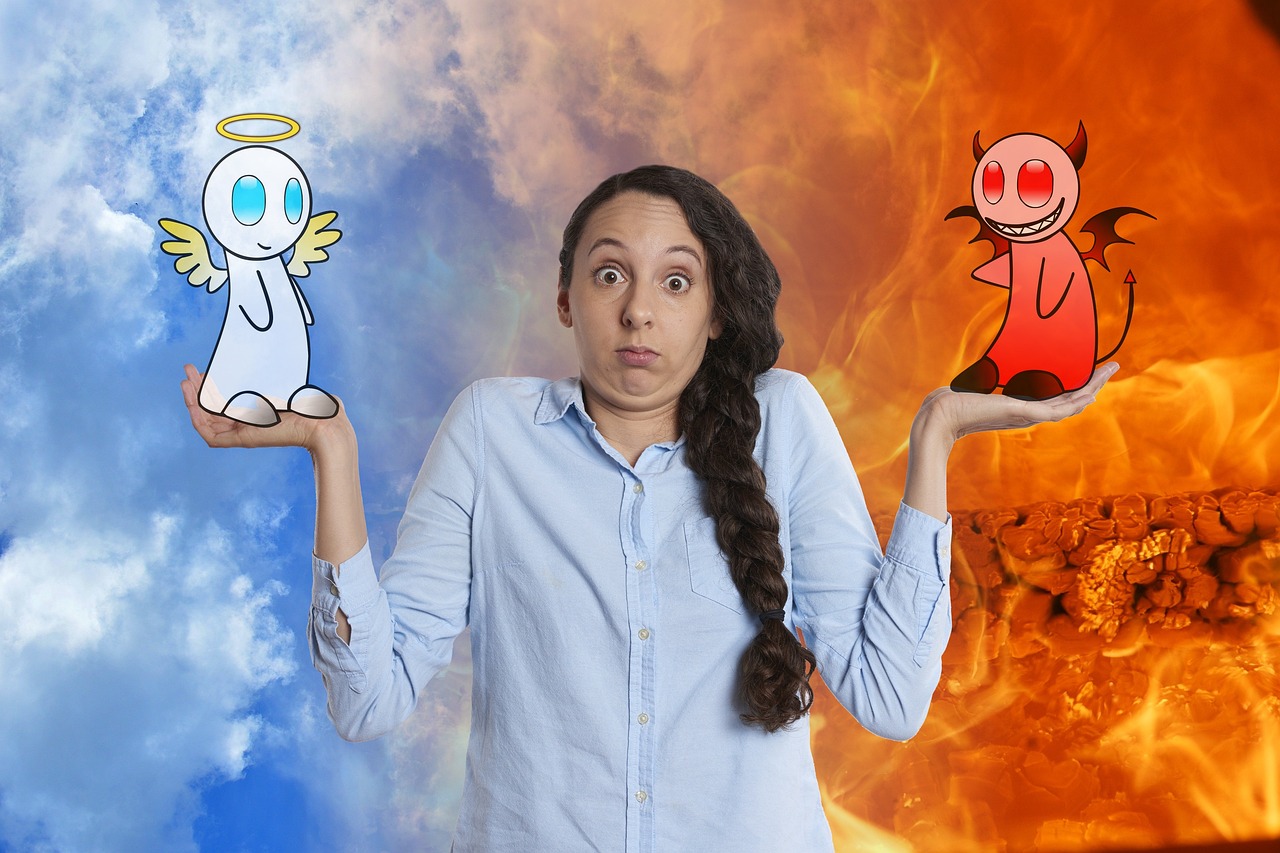
Events and Their Ethical Implications
In Alain Badiou's ethical framework, the notion of events plays a pivotal role in shaping moral understanding and action. He suggests that events are not just occurrences in time; they are transformative moments that challenge the status quo and compel individuals to rethink their ethical positions. Imagine a massive earthquake that shakes the very foundation of a city. Just as that earthquake forces people to confront their vulnerabilities and reassess their priorities, Badiou posits that significant events in society—be they revolutions, protests, or groundbreaking discoveries—serve a similar purpose in the realm of ethics.
When an event disrupts established norms, it creates a space for new truths to emerge. This disruption can lead to a reevaluation of moral principles, encouraging individuals and communities to engage with ethical dilemmas that they may have previously overlooked. For instance, consider the civil rights movement in the United States. This monumental event not only challenged systemic racism but also redefined what justice and equality mean in a modern society. Badiou would argue that such events provide a unique opportunity for individuals to align their actions with these newly emerging truths.
Furthermore, Badiou emphasizes that the ethical implications of events are not merely theoretical; they demand a commitment to act. This is where the concept of fidelity comes into play. To be faithful to the truths that arise from events means to actively engage in the ongoing struggle for justice and to uphold the values that these events inspire. In this sense, ethical action is not a passive acceptance of norms but an active participation in the process of transformation. It requires individuals to ask themselves difficult questions: What truths have emerged from recent events? How can I contribute to the realization of these truths in my daily life?
To illustrate the ethical implications of events, let’s consider a few historical examples that resonate with Badiou's philosophy:
| Event | Ethical Implication | Emerging Truths |
|---|---|---|
| French Revolution | Challenge to monarchy and class hierarchy | Liberty, Equality, Fraternity |
| Fall of Apartheid | Rethinking racial justice | Human Rights for All |
| Me Too Movement | Awareness of sexual harassment | Consent and Respect |
Each of these events not only redefined societal norms but also invited individuals to participate in a broader conversation about ethics. They highlight that ethical implications are not static; they evolve as society grapples with new realities. Badiou's emphasis on events thus serves as a reminder that ethical engagement is a dynamic process, requiring ongoing reflection and commitment.
In conclusion, the ethical implications of events in Badiou's philosophy challenge us to remain vigilant and responsive. They call for an active engagement with the truths that arise from our collective experiences, urging us to reflect on our responsibilities in the face of change. By understanding events as catalysts for ethical transformation, we can better navigate the complexities of our moral landscape and contribute meaningfully to the ongoing quest for justice.
- What is the significance of events in Badiou's ethical framework?
Events are transformative moments that challenge existing norms and encourage ethical reevaluation. - How does Badiou define fidelity?
Fidelity involves a commitment to the truths that emerge from events, requiring active participation in ethical action. - Can you provide examples of events that have ethical implications?
Historical events like the French Revolution, the Fall of Apartheid, and the Me Too Movement serve as significant examples.

Examples of Transformative Events
Throughout history, there have been numerous transformative events that exemplify Alain Badiou's concept of the event, each serving as a catalyst for significant ethical and social change. These events do not merely disrupt the status quo; they challenge our perceptions of morality and compel us to reevaluate our commitments. For instance, consider the French Revolution, a monumental upheaval that redefined the landscape of political thought and social justice. It was not just a change in government; it was a radical shift in the understanding of equality, liberty, and fraternity. Badiou would argue that this event created new truths that individuals were called to be faithful to, thus reshaping their ethical responsibilities.
Another compelling example is the Civil Rights Movement in the United States during the 1960s. This movement was not merely a reaction to systemic racism; it was an event that illuminated the profound ethical obligation to fight against injustice. The leaders of this movement, such as Martin Luther King Jr. and Malcolm X, embodied Badiou's idea of fidelity to truth by committing themselves to the cause of equality and justice, inspiring countless others to join their struggle. The event forced society to confront uncomfortable truths about race and justice, fundamentally altering the moral landscape of the nation.
Moreover, the Arab Spring serves as a contemporary illustration of Badiou's framework. This wave of protests and uprisings across the Arab world was fueled by a collective desire for change, highlighting the ethical imperative to challenge oppressive regimes. Each protester became a bearer of new truths, demanding accountability and reform. The event not only transformed political structures but also ignited a broader discourse on human rights and dignity in the region.
These examples underscore the essence of Badiou's philosophy: transformative events create a moral imperative that compels individuals and societies to reassess their ethical commitments. They push us to confront the realities of our world and the responsibilities that come with recognizing new truths. In doing so, they invite us to participate actively in shaping a more just and equitable society.

Fidelity to Truths
In the realm of Alain Badiou's philosophy, stands as a cornerstone of ethical action. But what does it mean to be faithful to a truth that emerges from an event? Badiou posits that when a significant event disrupts the status quo, it unveils new truths that demand our attention and commitment. This fidelity is not merely a passive acknowledgment; it is an active engagement with the truths that arise, requiring individuals to embrace their ethical obligations towards these revelations.
Imagine standing at the edge of a cliff, overlooking a vast ocean. The waves crash violently against the rocks below, symbolizing the chaos of societal norms being challenged. In this turbulent environment, fidelity to truth is akin to holding onto a lifeline—a commitment to navigate through the storm of uncertainty. Badiou argues that this commitment is essential for ethical action, as it fosters a sense of responsibility towards the truths that have emerged from transformative events.
Moreover, fidelity to truths is not a one-time decision; it is a continuous journey. It requires individuals to reflect on their experiences, reassess their values, and adapt their actions in alignment with the newly discovered truths. This process can be likened to a dance, where one must remain in tune with the rhythm of change while staying grounded in their ethical convictions. In this dance, the individual must ask themselves: How can I remain true to the insights gained from significant events, and what responsibilities do I bear towards these truths?
To better understand the implications of fidelity to truths, consider the following aspects:
- Responsibility: Being faithful to a truth means recognizing the weight of responsibility that comes with it. This involves not only personal accountability but also a commitment to advocate for those truths in the wider community.
- Adaptability: As truths evolve, so too must our understanding and application of them. Fidelity requires a willingness to adapt and grow, ensuring that our ethical actions remain relevant in a changing world.
- Collective Action: Badiou emphasizes that fidelity is often a collective endeavor. Individuals must come together, sharing their insights and actions to create a more profound impact on society.
In essence, fidelity to truths is about more than just personal integrity; it is about forging connections with others who share a commitment to ethical action. It is a call to arms, urging individuals to stand firm in their convictions while remaining open to the evolving nature of truth itself. As we navigate the complexities of our contemporary world, Badiou's philosophy reminds us that our fidelity is not just a personal journey, but a collective responsibility that can shape the very fabric of society.
- What is the significance of fidelity in Badiou's ethics?
Fidelity is crucial as it demands a commitment to the truths that emerge from transformative events, guiding ethical actions in a constantly changing landscape.
- How does Badiou's concept of truth differ from traditional views?
Badiou views truth as something that arises from specific events rather than being an absolute or static concept, emphasizing the dynamic nature of ethical understanding.
- Can fidelity to truths be applied in everyday life?
Yes, individuals can apply fidelity by actively engaging with new insights and being responsible for their actions in light of those truths, fostering personal and societal growth.

Critiques of Badiou's Ethical Framework
Alain Badiou's ethical framework, while groundbreaking, is not without its critics. One of the primary critiques revolves around the idealism inherent in his philosophy. Critics argue that Badiou's emphasis on truths emerging from significant events can lead to a disconnect between philosophical ideals and the messy realities of everyday life. For instance, how do we apply the notion of fidelity to a truth that may be subjective or contested? This question raises doubts about the practicality of Badiou's approach in real-world scenarios.
Another point of contention is the applicability of Badiou's ethical principles to diverse contexts. Some philosophers suggest that his framework is overly focused on grand narratives and transformative events, potentially sidelining the more mundane yet equally important ethical dilemmas people face daily. In a world filled with small, incremental changes and ongoing social issues, the call for radical fidelity to a singular truth may seem unrealistic or even counterproductive.
Moreover, Badiou's reliance on the event as a catalyst for ethical action raises questions about the selection of which events are deemed significant. This subjectivity can lead to a hierarchy of events, where some are celebrated and others are ignored, depending on the prevailing ideological framework. Critics argue that this can result in a form of elitism, where only certain voices or movements are recognized as worthy of fidelity, leaving out marginalized perspectives that also strive for ethical transformation.
Additionally, Badiou's stance on political activism has come under scrutiny. While he advocates for active engagement in political movements, skeptics question the effectiveness of such activism in a world rife with complex power dynamics. They argue that simply adhering to a truth derived from an event does not guarantee successful outcomes or social justice. In fact, it may lead to disillusionment if the anticipated change does not materialize.
In summary, while Badiou's ethical framework offers a refreshing lens through which to examine morality and societal responsibilities, it is essential to engage with these critiques to fully understand its implications. As we navigate the challenges of contemporary ethics and politics, a nuanced approach that considers both Badiou's insights and the limitations of his philosophy may be the most fruitful path forward.
- What is the core principle of Badiou's ethical framework?
Badiou's ethics center around the concepts of truth, fidelity, and transformative events, emphasizing the importance of remaining loyal to truths that emerge from significant societal changes. - How does Badiou view political activism?
He encourages active participation in political movements, suggesting that ethical responsibilities should be rethought in the context of pursuing social justice. - What are the main critiques of Badiou's philosophy?
Critics often point to its idealism, applicability to real-world situations, potential elitism in recognizing significant events, and the effectiveness of activism derived from his principles.

Badiou's Influence on Contemporary Ethics
Alain Badiou’s philosophical insights have profoundly shaped the landscape of contemporary ethics, providing a fresh lens through which to view moral dilemmas and societal issues. His emphasis on truth and fidelity has sparked new discussions around ethical responsibilities, particularly in the realms of political activism and social justice. In a world increasingly characterized by complexity and contradiction, Badiou’s ideas serve as a beacon for those seeking to navigate the murky waters of morality.
One of the most significant aspects of Badiou's influence is his call for active engagement in political movements. He argues that ethics should not be a passive reflection of societal norms but rather an active force that drives change. This perspective challenges individuals to reconsider their roles within society and to take a stand against injustice. For example, Badiou’s philosophy encourages individuals to participate in movements that align with their ethical beliefs, suggesting that true fidelity to a cause requires more than just belief—it demands action.
Moreover, Badiou’s thoughts on social justice compel us to critically examine how our actions can reflect higher ethical standards. He posits that social justice is not merely an ideal but a practical reality that can be achieved through collective effort. By analyzing historical and contemporary events, Badiou illustrates how movements for social change can embody the principles of his ethical framework. The events of the Arab Spring, for instance, can be viewed through Badiou's lens as significant disruptions that challenge the status quo, prompting a reevaluation of justice and human rights on a global scale.
To better understand Badiou's influence, let's break down some key areas where his ideas have made a mark:
| Area of Influence | Description |
|---|---|
| Political Activism | Badiou advocates for a rethinking of ethical responsibilities in political movements, emphasizing the importance of collective action. |
| Social Justice | His framework prompts critical examination of how personal and societal actions can align with the pursuit of justice. |
| Philosophical Discourse | Badiou's ideas challenge traditional philosophical discussions, urging a more dynamic interaction between ethics and real-world issues. |
In summary, Badiou's influence on contemporary ethics is significant and multifaceted. His insistence on the interplay between ethics, truth, and action provides a robust framework for understanding and addressing moral issues in today's world. By encouraging active participation in political and social movements, Badiou not only redefines the role of the individual in ethical discourse but also inspires a generation to seek out truth and justice in an ever-evolving landscape.
- What is Badiou's main ethical principle? Badiou's main ethical principle revolves around the concepts of truth, fidelity, and the transformative power of significant events.
- How does Badiou view political activism? He sees political activism as a crucial component of ethical responsibility, urging individuals to engage actively in movements for social change.
- Can Badiou's ideas be applied to modern social justice movements? Yes, his framework provides valuable insights into how individuals and collectives can align their actions with the pursuit of social justice.

Political Activism and Ethics
Alain Badiou’s philosophy is not just a theoretical exercise; it’s a call to action. He posits that ethical engagement in political activism is not only necessary but also a moral obligation. In a world rife with injustice and inequality, Badiou encourages us to actively participate in movements that challenge the status quo. This is where the concept of fidelity to truth becomes crucial. It’s about committing ourselves to the truths that emerge from significant events, such as revolutions or social uprisings, and using those truths as guiding principles for our actions.
But what does this commitment look like in practice? Badiou advocates for a rethinking of our ethical responsibilities, urging individuals to question their roles in societal change. It’s not enough to merely acknowledge injustices; we must engage with them. This engagement can take many forms: from grassroots organizing and protests to intellectual discourse and art. Each of these actions contributes to a larger tapestry of resistance against oppressive systems.
Moreover, Badiou’s framework pushes us to consider the implications of our actions. Are we aligning ourselves with movements that genuinely seek to create a better world? Or are we merely participating for personal gain or social validation? This reflection is essential in navigating the often murky waters of political activism. Badiou challenges us to be vigilant, to ensure that our activism is rooted in a profound ethical commitment to the truths we uphold.
In light of this, let’s explore some key aspects of political activism through Badiou's lens:
- Active Engagement: Badiou’s philosophy calls for active participation in political movements, emphasizing that change requires more than passive observation.
- Collective Responsibility: He highlights the importance of collective action, suggesting that individual efforts are amplified when united with others who share similar truths.
- Critical Reflection: Badiou urges activists to critically assess their motivations and the consequences of their actions, ensuring alignment with ethical standards.
Ultimately, Badiou’s insights into political activism and ethics compel us to rethink our roles in the world. They challenge us to embrace a more profound responsibility to ourselves and to each other. In a society where apathy can often reign, Badiou’s call for ethical engagement serves as a beacon for those seeking to make a meaningful impact. Are we ready to answer that call?
- What is Badiou's view on political activism? Badiou believes that political activism is essential for ethical engagement, urging individuals to commit to truths that emerge from significant events.
- How does Badiou define 'truth' in the context of activism? For Badiou, truth is not just a static concept; it evolves from events that challenge established norms, and fidelity to these truths is crucial for ethical action.
- Can Badiou's philosophy be applied to contemporary social movements? Yes, Badiou's ideas are highly relevant to modern social movements, encouraging critical examination of ethical responsibilities in the pursuit of justice.

Ethics and Social Justice
Alain Badiou’s philosophical framework offers a profound lens through which we can examine the intricate relationship between ethics and social justice. In a world where inequalities and injustices seem to proliferate, Badiou’s emphasis on the event and truth becomes particularly relevant. He challenges us to rethink our ethical responsibilities, urging individuals and societies to align their actions with a higher moral purpose. This call for alignment is not merely theoretical; it is a practical necessity in our quest for a just society.
At the heart of Badiou’s ethical stance is the idea that significant events—be they revolutions, social movements, or moments of collective awakening—serve as catalysts for change. These events disrupt the status quo, compelling us to reevaluate our moral frameworks. For instance, consider the civil rights movement in the United States. This transformative event did not just challenge existing laws; it redefined what justice means in a societal context. Badiou would argue that such events create new truths that we must remain faithful to, fostering a sense of responsibility toward those who have been marginalized.
Moreover, Badiou’s notion of fidelity plays a crucial role in the discourse on social justice. To be faithful to a truth emerging from an event means to actively engage in the struggle for justice, even when the path is fraught with challenges. This fidelity is not a passive acceptance of circumstances; it requires active participation and a commitment to uphold the values that promote equity and inclusion. In practical terms, this could manifest in various ways:
- Advocacy: Speaking out against injustices and supporting movements that aim to rectify societal wrongs.
- Education: Raising awareness about social issues and encouraging informed discussions that can lead to collective action.
- Community Engagement: Participating in grassroots initiatives that seek to empower marginalized communities.
Through these actions, individuals not only honor the truths revealed by significant events but also contribute to a broader movement toward social justice. Badiou’s philosophy pushes us to consider how our ethical decisions impact the lives of others, urging us to think beyond ourselves and our immediate surroundings.
However, the journey toward social justice is not without its challenges. Critics of Badiou's framework often argue that his ideals can be overly idealistic, raising questions about the practicality of his philosophical assertions in the face of real-world complexities. While it is easy to advocate for change in theory, the actual implementation of these ethical principles can be daunting. This is where the dialogue between ethics and social justice becomes crucial. It invites us to explore not only what is morally right but also how we can effectively translate those morals into actions that yield tangible results.
In conclusion, Badiou’s insights into ethics and social justice compel us to engage deeply with our moral responsibilities. They encourage us to view social justice not as a distant goal but as an ongoing process that requires our active participation. By remaining faithful to the truths that emerge from significant events, we can contribute to a more just and equitable society, embodying the very essence of Badiou’s ethical philosophy.
- What is Alain Badiou's main contribution to ethics?
Badiou emphasizes the importance of events and truths that challenge the status quo, advocating for fidelity to these truths as a basis for ethical action. - How does Badiou define social justice?
For Badiou, social justice is intertwined with ethical responsibilities, requiring individuals to actively engage in movements that promote equity and challenge injustices. - Can Badiou's philosophy be applied in real-world scenarios?
While some critiques suggest idealism, Badiou's framework encourages practical engagement in social justice efforts, emphasizing the need for active participation.
Frequently Asked Questions
- What is Alain Badiou's ethical philosophy about?
Alain Badiou's ethical philosophy revolves around the concepts of truth, fidelity, and the event. He believes that ethical actions emerge from significant events that disrupt established norms, urging individuals to remain faithful to the truths that arise from these events. This perspective challenges conventional moral frameworks and encourages a re-evaluation of ethical responsibilities in our rapidly changing world.
- How does Badiou define 'truth' in his philosophy?
In Badiou's philosophy, 'truth' is not simply a static fact but a dynamic process that unfolds through transformative events. He posits that these events challenge existing structures and norms, creating opportunities for ethical transformation. For Badiou, remaining faithful to these emerging truths is essential for ethical action, as it fosters a deeper sense of responsibility towards societal changes.
- Can you give examples of events that illustrate Badiou's ethical framework?
Absolutely! Historical events like revolutions, social movements, or significant cultural shifts serve as prime examples of Badiou's concept of the event. These occurrences can redefine ethical frameworks and inspire collective action, demonstrating how individuals can engage with and respond to the truths that arise from such moments.
- What does Badiou mean by 'fidelity to truths'?
'Fidelity to truths' in Badiou's framework refers to the commitment individuals make to the truths that emerge from significant events. This commitment goes beyond mere acknowledgment; it entails a sense of ethical obligation to act in accordance with these truths, fostering a deeper connection to societal responsibilities and the moral implications of our actions in a constantly shifting reality.
- What are some critiques of Badiou's ethical framework?
While Badiou's ethics are influential, they face critiques regarding their practicality and potential idealism. Critics argue that his emphasis on events and truths may not always translate effectively into real-world applications, raising important questions about how individuals can navigate complex moral dilemmas while remaining faithful to Badiou's philosophical ideals.
- How has Badiou influenced contemporary ethics?
Badiou's ideas have significantly impacted modern ethical discussions, particularly in areas like political activism and social justice. His philosophy encourages active engagement in political movements and prompts individuals and societies to align their actions with higher ethical standards, fostering a critical examination of our responsibilities in the pursuit of social change.
- What role does Badiou see for philosophy in addressing moral issues?
Badiou believes that philosophy plays a crucial role in addressing moral issues by challenging existing ethical frameworks and encouraging individuals to rethink their responsibilities. His approach advocates for a philosophy that is not merely theoretical but actively engages with the world, inspiring individuals to participate in political and social movements aimed at achieving justice.



